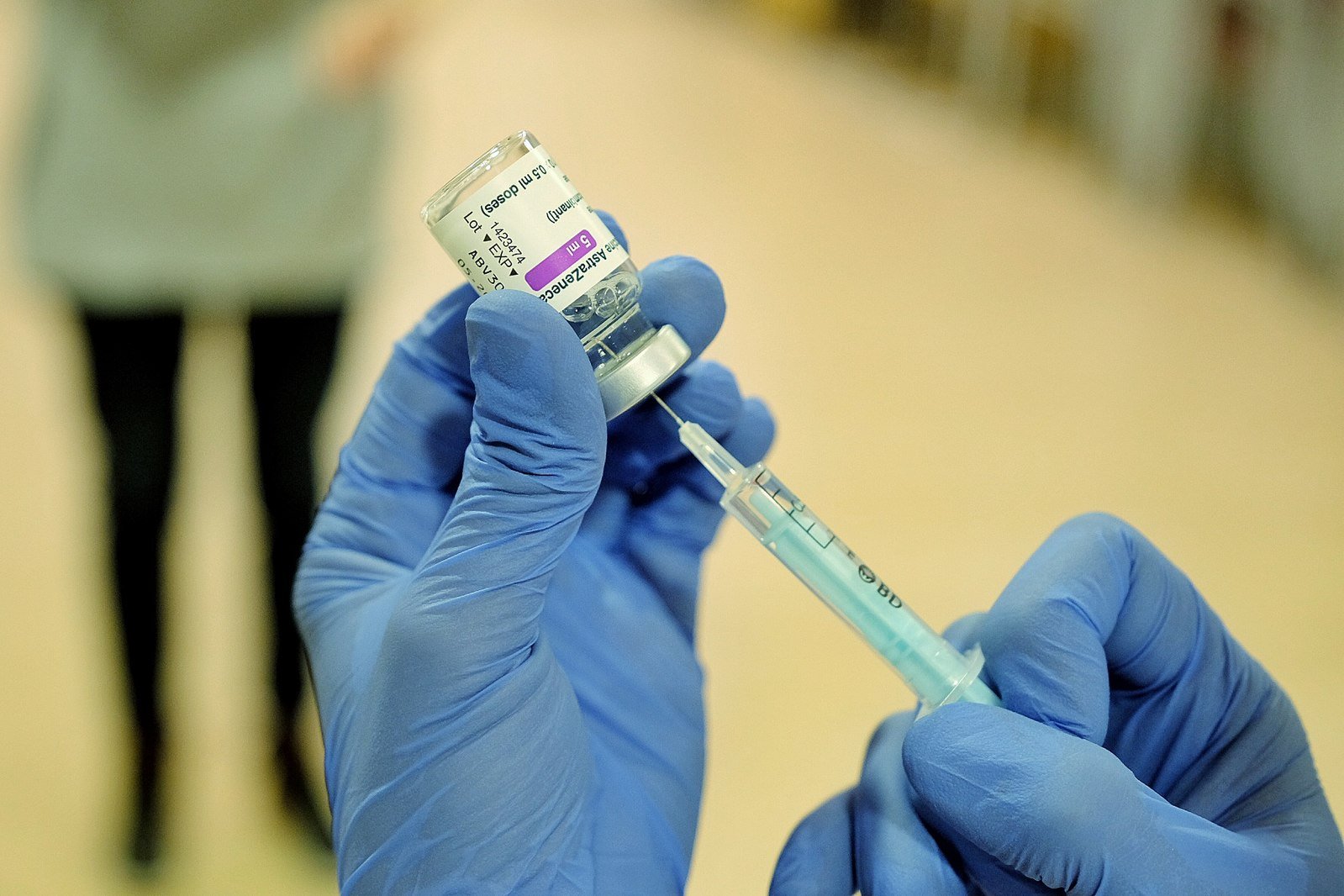A report from the University of Oxford has found that the risk of developing rare blood clots from a COVID-19 infection is seven times higher than the risk from vaccines. COVID-19 also increases the risk of rare blood clots by 100 times compared to normal.
The international rollout of the Oxford-AstraZeneca vaccine has been dogged by concerns about whether the vaccine is linked with rare blood clots in the brain called cerebral venous thrombosis (CVT). In the UK, 44 CVT cases had been reported in patients who received the AstraZeneca vaccine as of March 31st. 14 of those patients died, although it is not certain whether the clots caused their deaths. 20.2 million doses of the AstraZeneca vaccine had been administered in the UK by this point.
In early April, the Joint Committee on Vaccines and Immunisation (JCVI) advised that healthy 18-29 year olds who were not at high risk from the virus should be offered an alternative to the AstraZeneca vaccine. The decision was made because three cases of blood clots were found in patients in this age group, who are generally at a lower risk from COVID-19 than older people.
Researchers at Oxford University’s Department of Psychiatry and the NIHR Oxford Health Biomedical Research Centre compared the number of CVT cases diagnosed in patients two weeks after they were diagnosed with COVID-19 or had received a vaccine, and compared it with the background level in the general population.
Over 500,000 COVID-19 patients were included in the study, along with over 480,000 people who had received either the Moderna or Pfizer vaccines. CVT occurred most frequently in COVID-19 patients, at a rate of 39 per million. 30% of these cases occurred in patients younger than 30. The rate is 100 times higher than the background level of CVT in the general population.
The reported rate of CVT in patients who received the first dose of the AstraZeneca vaccine stands at about 5 per million. This rate of CVT after contracting COVID-19 is about 8 times greater than the risk from the AstraZeneca vaccine. For patients who had received the Moderna or PFizer, the rate is about 4 per million. The rate from contracting COVID-19 is about 10 times greater.
It is unclear whether COVID-19 increases the risk of developing CVT via the same or different mechanisms as vaccines.The researchers advised that the data should be interpreted with caution, since the rates could change as more data is gathered. There is also uncertainty in the data surrounding whether CVT is under-reported in medical records.
The Head of the Transneural Biology Group at Oxford University, Professor Paul Harrison, said: “We’ve reached two important conclusions. Firstly, COVID-19 markedly increases the risk of CVT, adding to the list of blood clotting problems this infection causes. Secondly, the COVID-19 risk is higher than we see with the current vaccines, even for those under 30; something that should be taken into account when considering the balances between risks and benefits for vaccination”.
Patients who experience unusual bruising around the injection site, new or persistent headaches, confusion, seizures, blurred vision, shortness of breach, chest pain, and leg swelling after receiving a vaccine are advised to seek medical attention.
Image: Vacunació Professionals / CC0 1.0



